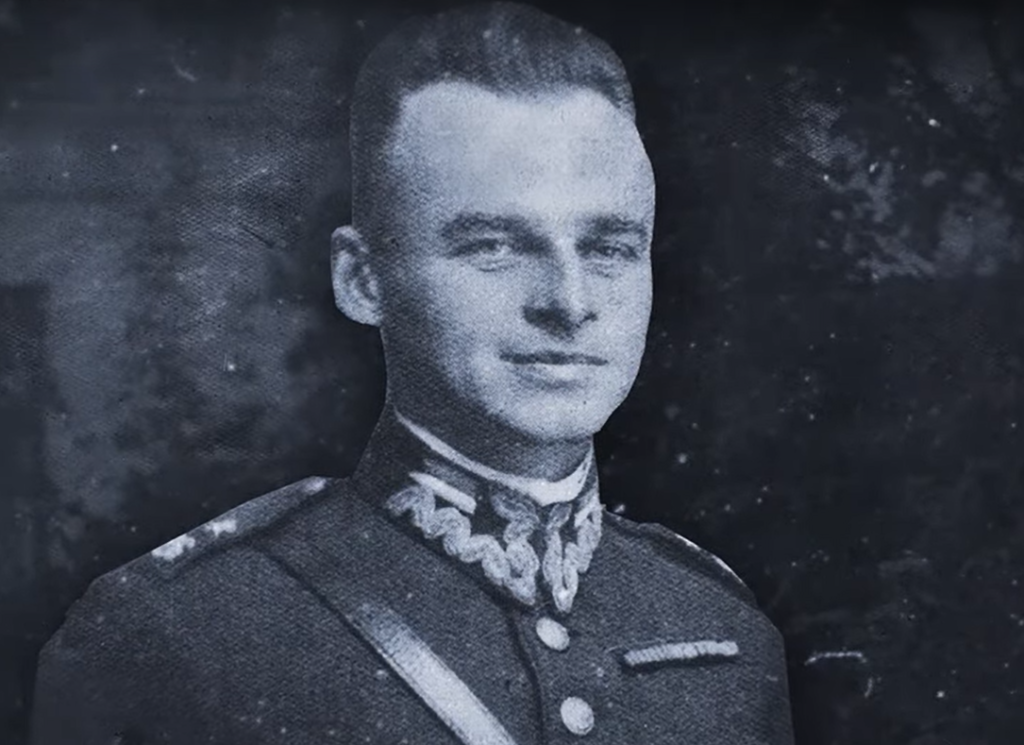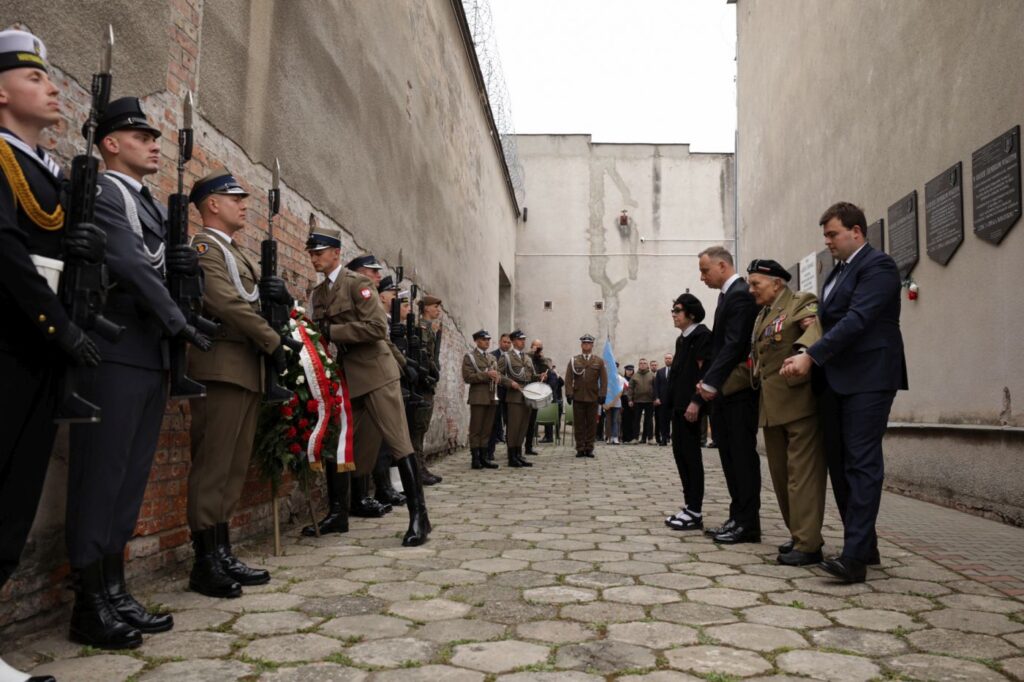
75 years ago, on May 25, 1948, in the Mokotów prison, the communists murdered cavalry captain Witold Pilecki, a participant in the Polish-Bolshevik war, the 1939 campaign, an Home Army officer who voluntarily went to Auschwitz to create a military conspiracy there, and later report on German crimes. On this day we celebrate the International Day of Heroes Fighting Against Totalitarianism.
On May 25, 2023, in the morning, President Andrzej Duda, together with Zofia Pilecka and Janusz Walędzik “Czarny”, Witold Pilecki’s liaison during the Warsaw Uprising, paid tribute to Witold Pilecki by laying flowers at the wall of death in the former prison on Rakowiecka Street in Warsaw. The ceremony was attended by the president of the Institute of National Remembrance, Dr. Karol Nawrocki and the director of the Museum of Cursed Soldiers and Political Prisoners of the People’s Republic of Poland, Dr. hab. Filip Musiał.
“We are meeting in an extremely important place for Poland, and at the same time a terrible place, where the communists tortured and murdered over three thousand faithful sons and daughters of the Republic of Poland, where steadfast soldiers and those who did not agree with the enslavement of Poland by the Soviets after World War II were imprisoned and with the power imposed by the Soviets. They defended free, sovereign Poland to the very end, they fought for it until the very end” – President Andrzej Duda said.
“Among them was cavalry captain Witold Pilecki – one of the absolute greatest heroes not only of our Polish, the greatest soldiers of World War II and the Republic of Poland, but the greatest heroes of this war in general” – he added.
“He was shot by the communists as a result of a judicial crime – that’s how you have to call it by name – convicted of “treason”, as he spoke bravely and calmly at the time, he did what he had to do, fulfilled his military oath, reported to his home unit” – stressed Andrzej Duda, noting that cavalry capt. Witold Pilecki “is a global symbol of the fight against totalitarianism”. “He fought against both totalitarianisms for the freedom of his homeland, for freedom and human rights – against Nazi, German and Soviet totalitarianism” – he recalled.
During a visit to the Museum of the Cursed Soldiers and Political Prisoners of the People’s Republic of Poland, Andrzej Duda saw the reconstructed cell no. 37, where Witold Pilecki was imprisoned.
“Today, with contempt for communist henchmen and with pride in the victory of memory over oblivion, the victory of truth over untruth, we can say that God loved Poland so much that he sent it cavalry captain Witold Pilecki. Captain Witold Pilecki, who is part of our national catalog of memory, which is in in our hearts and in our minds, which is our commitment and route. Glory to the heroes!” – said the president of the Institute of National Remembrance, Dr. Karol Nawrocki during the ceremony.
This part of the celebration ended with the laying of flowers at the wall of death.

Witold Pilecki was arrested by the communists on May 8, 1947. From May 9, the captain was in complete isolation in the X Pavilion of the Mokotów prison. Brutally tortured, he signed prepared materials from the investigation. Accused of espionage, he went to court and was found guilty in a rigged trial. May 25, 1948 at 9.30 pm he was shot in the presence of the Deputy Prosecutor of the Chief Prosecutor’s Office of the Polish Army, Major S. Cypryszewski, the Head of the Mokotów Prison – Lieutenant Ryszard Mońko, a doctor Kazimierz Jezierski, priest – Fr. Capt. Wincenty Martusiewicz. His body was secretly buried, probably in the so-called “Łączka” today, section “Ł” of the Powązki Cemetery. It was not until September 1990 that the Supreme Court acquitted the captain and his companions, showed the unjust nature of the sentences and the patriotic attitude of the convicts in this trial. In July 2006, the President of the Republic of Poland, Lech Kaczyński, recognizing the merits of Witold Pilecki and his devotion to the homeland, awarded him posthumously with the Order of the White Eagle.
AW
Źródło: Prezydent.pl, IPN
